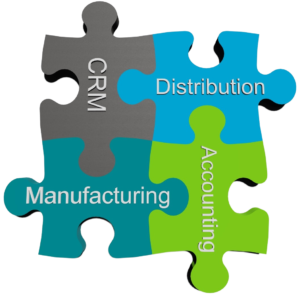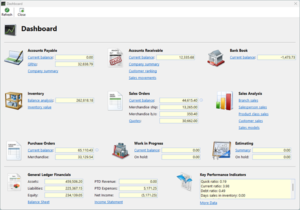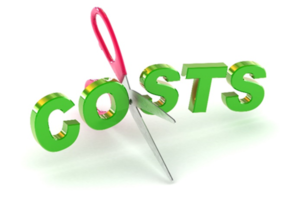While ERP systems might appear intimidating for small businesses due to the perceived high costs and complexities typically associated with larger companies, they offer benefits that can significantly transform small businesses. Specifically, for distributors and manufacturers, the advantages of ERP systems can be groundbreaking. By automating and digitizing workflows, ERPs can augment operational effectiveness and cut down overall expenses.
Here are five compelling reasons for small businesses to embrace ERP systems early in their business life:
1 – Unified Business Processes
ERP systems consolidate diverse business functions into a singular unified platform. Activities such as sales, finance, inventory, and customer relationship management can be seamlessly overseen and operated from a single data source. No matter the size of your business, this integration not only enhances operational fluidity but also ensures that data remains consistent and updated. Dive deeper with this illustrative case study on integration success stories.

2 – Empowered Decision-Making
An optimal ERP system equips small businesses with access to real-time analytics and data. This real-time access enables swift and informed decisions. Consider these scenarios where an ERP system proves invaluable:
Inventory Management: By providing live insights into inventory status across different venues, ERP systems facilitate key inventory decisions, preventing stockouts or overstocking and ensuring optimal stock levels.
Optimizing Supply Chains: Track goods movement, evaluate supplier efficacy, and oversee procurement processes. Harness this data to select efficient suppliers, refine shipping pathways, or renegotiate contracts based on instantaneous cost-performance metrics.
Strategizing Sales and Marketing: ERP systems house extensive customer data – from buying habits to demographics. Utilize this data to develop tailored marketing campaigns and personalized customer experiences. Refine sales and marketing endeavors based on the in-depth insights from ERP metrics.
Dive into Aquilon’s ERP dashboard for a visual representation of diverse real-time data. Explore more on real time ERP data here.

3 – Agility and Scalability
With business growth comes amplified complexity in operations. ERP systems are inherently scalable, ensuring they adapt as your small business expands. Integrate new users, features, or processes effortlessly without substantial modifications. This adaptability ensures that the system remains relevant and valuable as the business evolves. Implement your ERP system sooner, so that your business can grow even faster.

4 – Economic Efficiency, a.k.a. Cost Savings
While the upfront costs of ERP might be intimidating for small businesses, the long-term returns in the form of significant savings are undeniable. By streamlining processes, reducing errors, and eliminating redundancy, operational efficiency is enhanced. Better inventory prediction tools also mean less wastage in inventory expenses. With Aquilon Software’s very affordable pricing against its big-league counterparts, the cost burden is further alleviated.

5 – Elevated Customer Service Levels
ERP systems offer an all-encompassing view of customer interactions – from sales and support to billing. This holistic perspective empowers staff with a full history of customer interactions, fostering personalized service, timely follow-ups, and swift issue resolution. Satisfied customers invariably lead to repeated business and glowing recommendations.
In conclusion, the upfront investment in ERP systems might feel steep for small enterprises, but the eventual advantages in operational efficiency, savings, and heightened customer contentment far surpass the initial costs.
So, where do you stand? Make a move towards growth or remain static?

